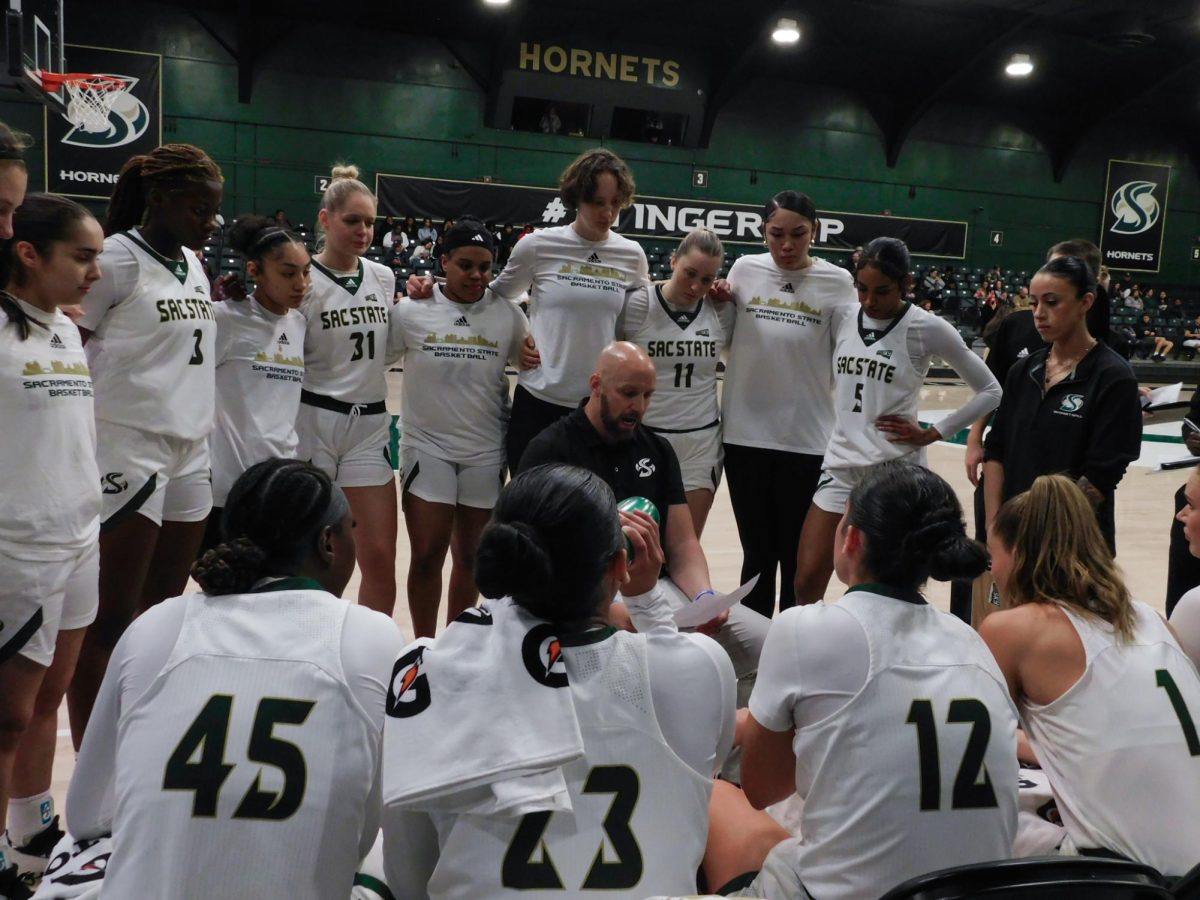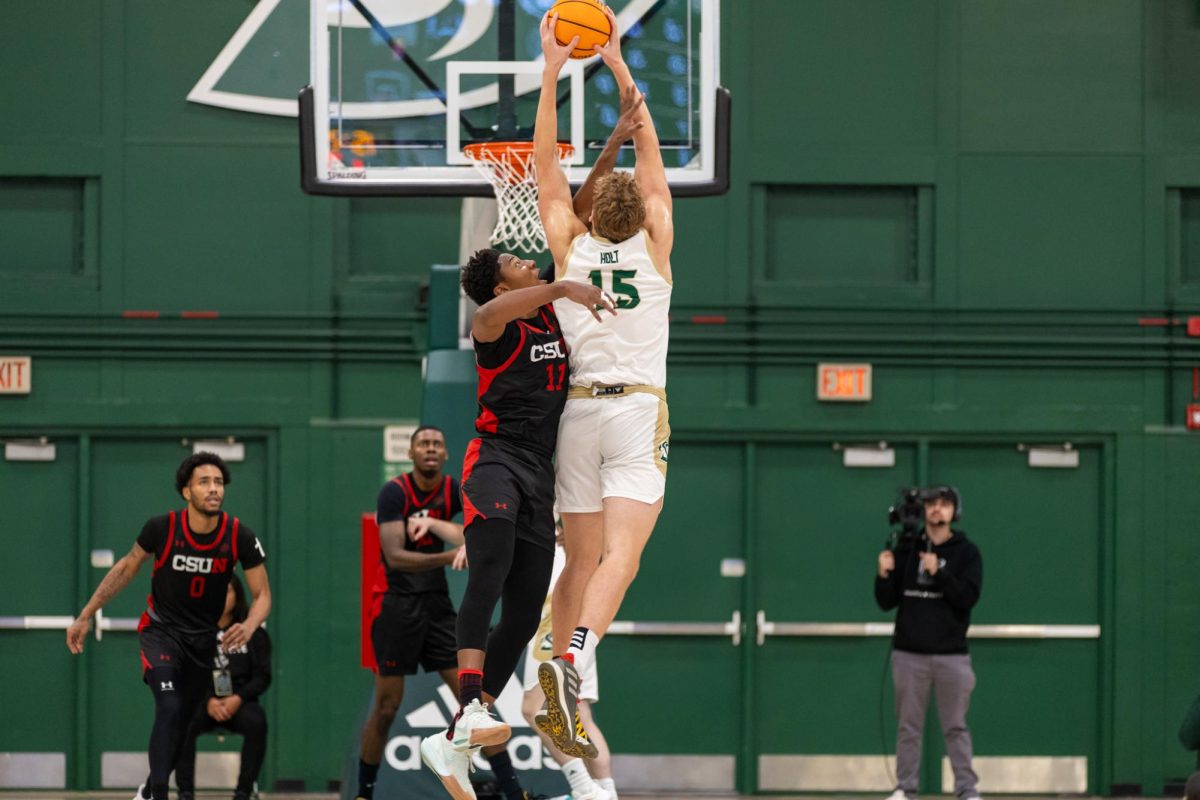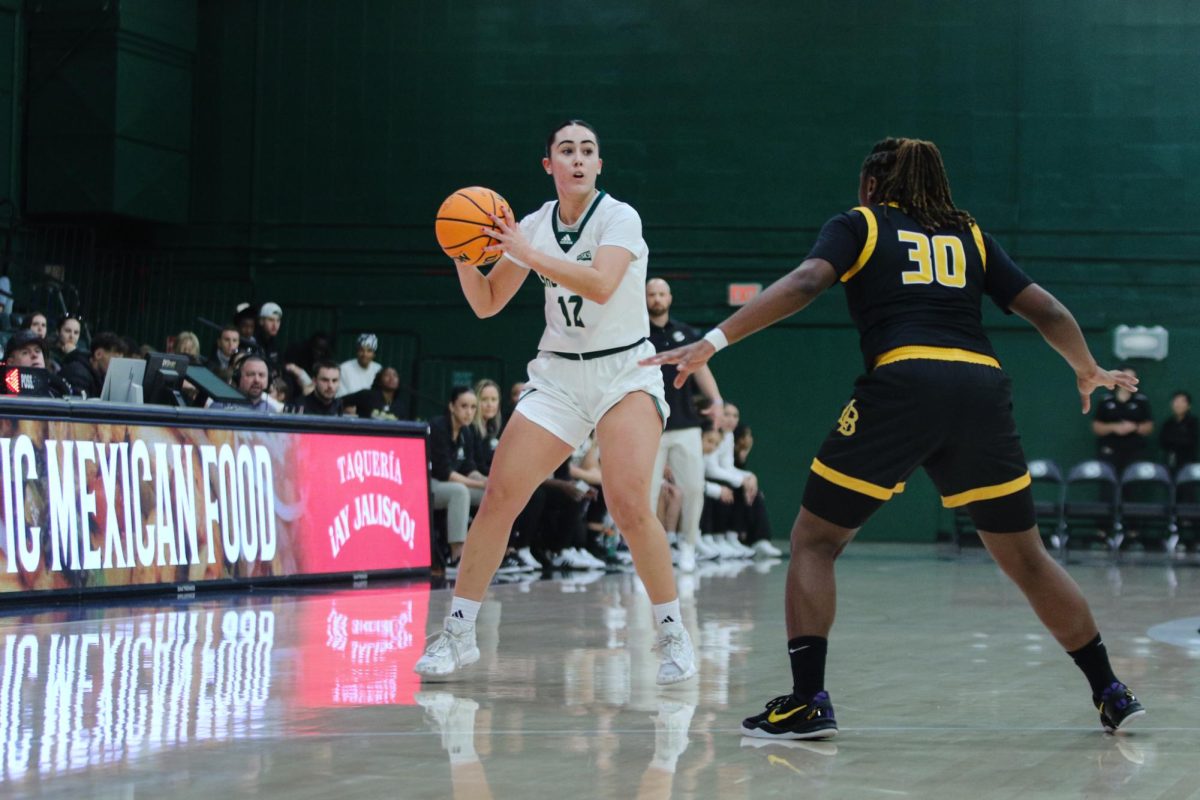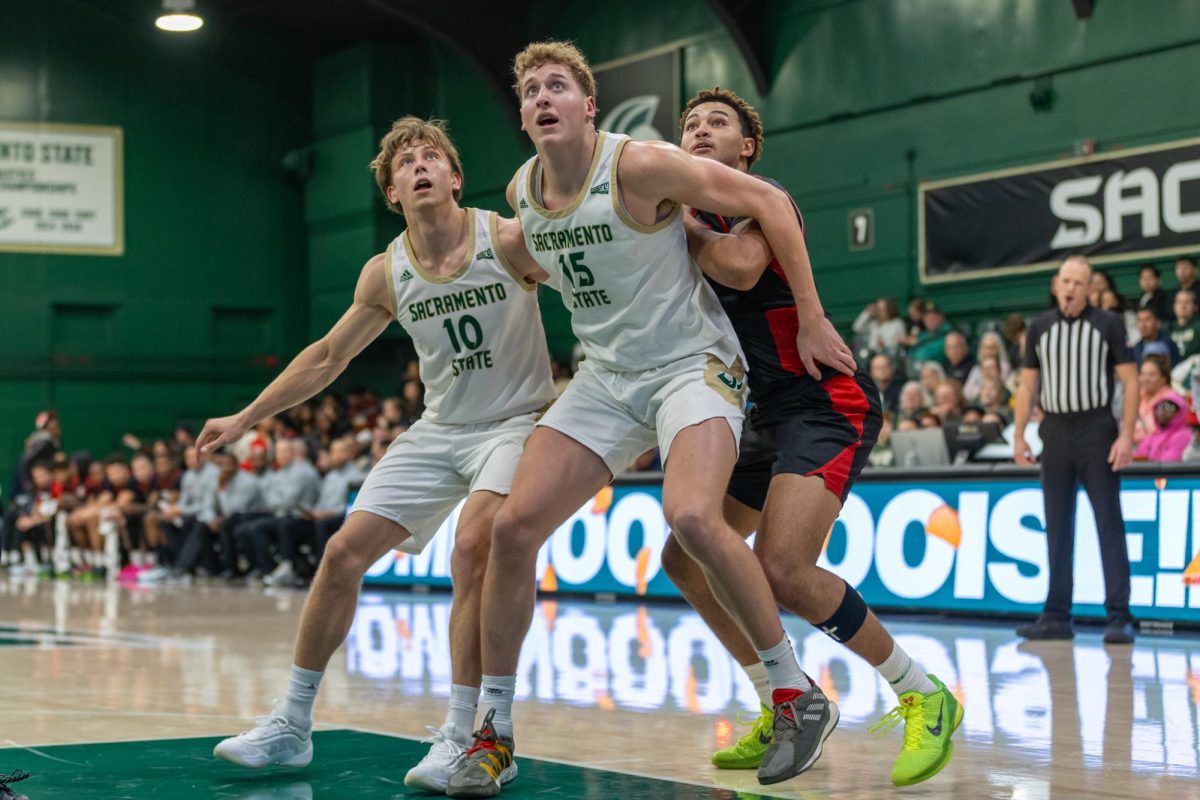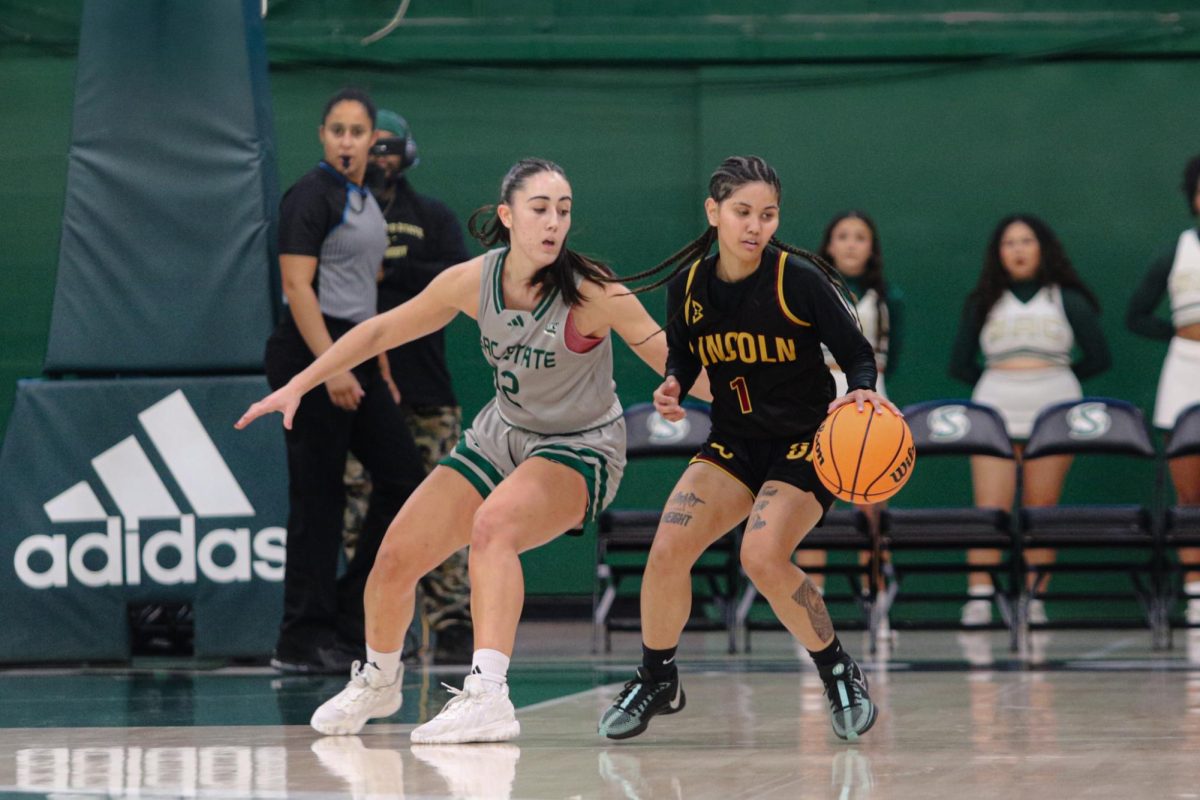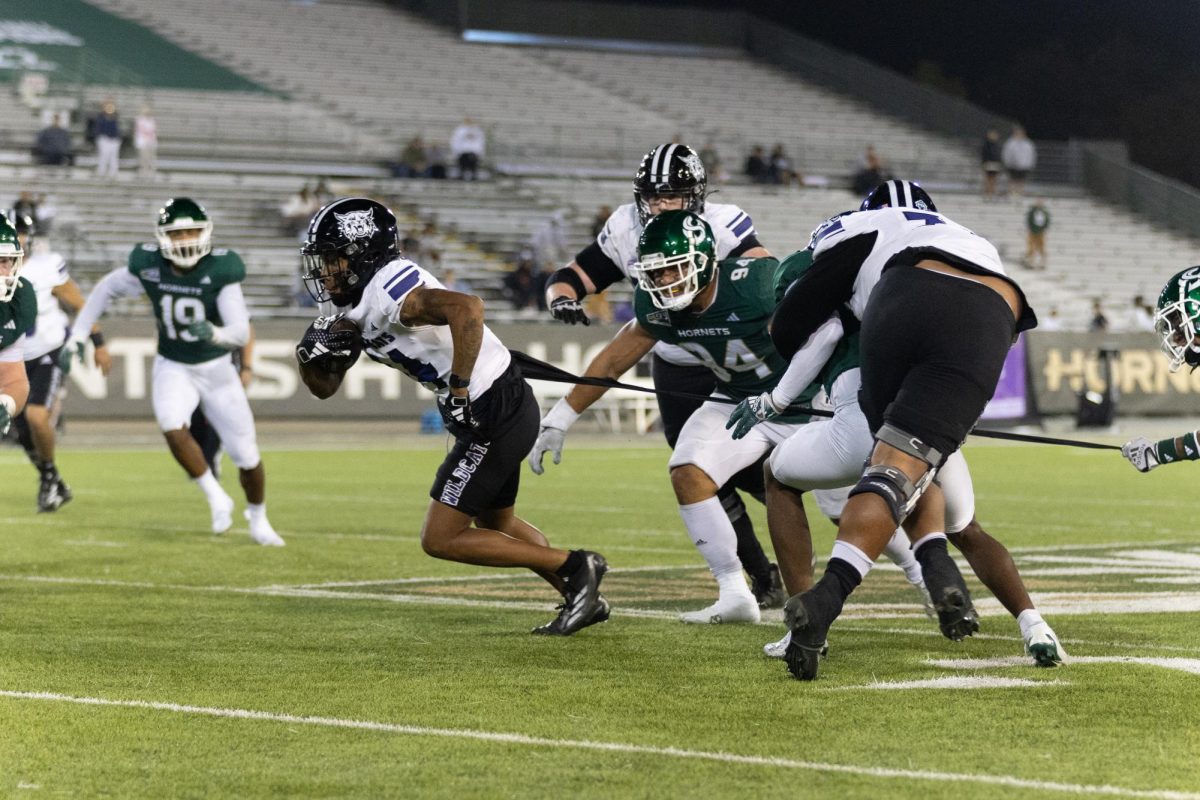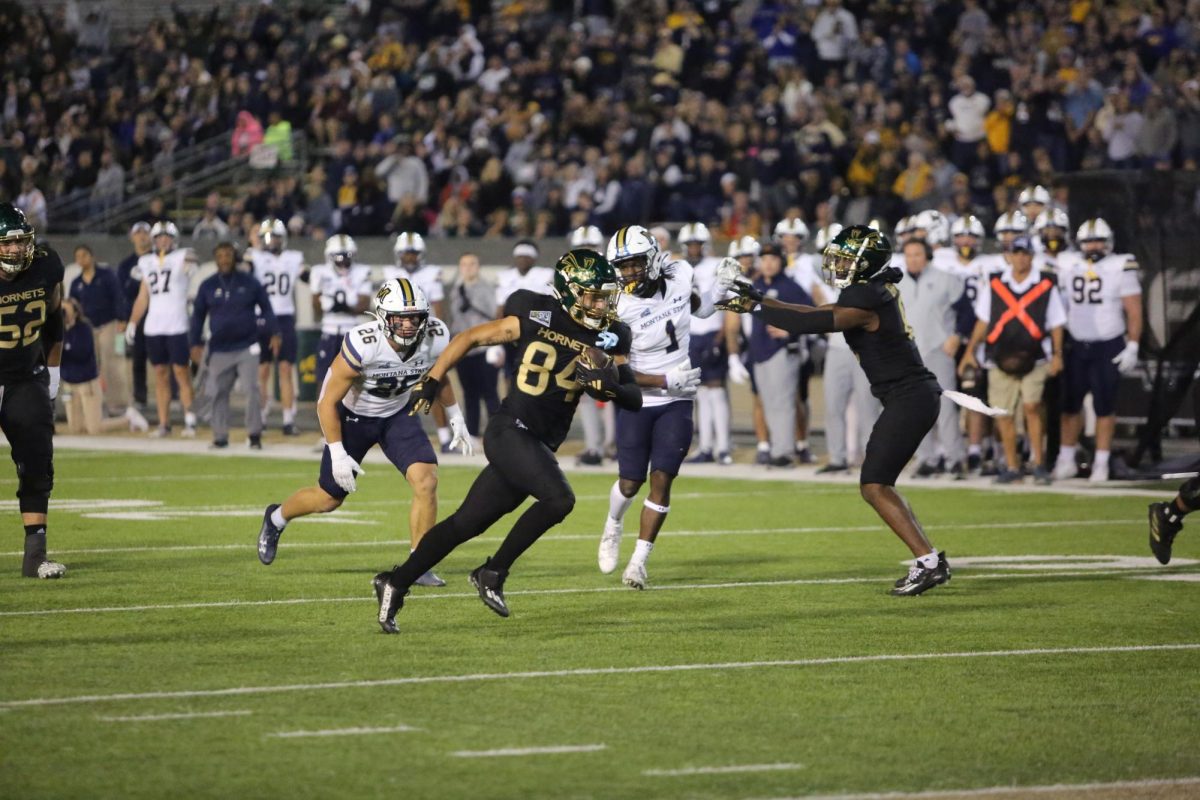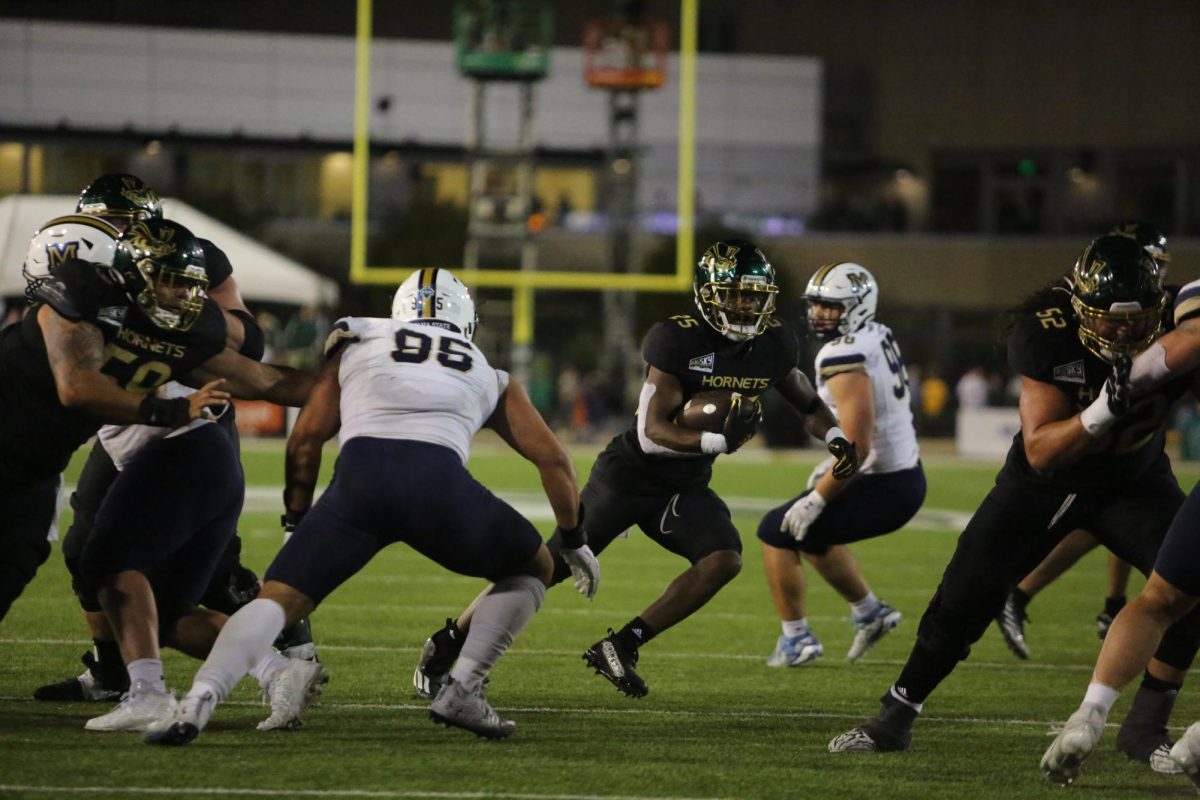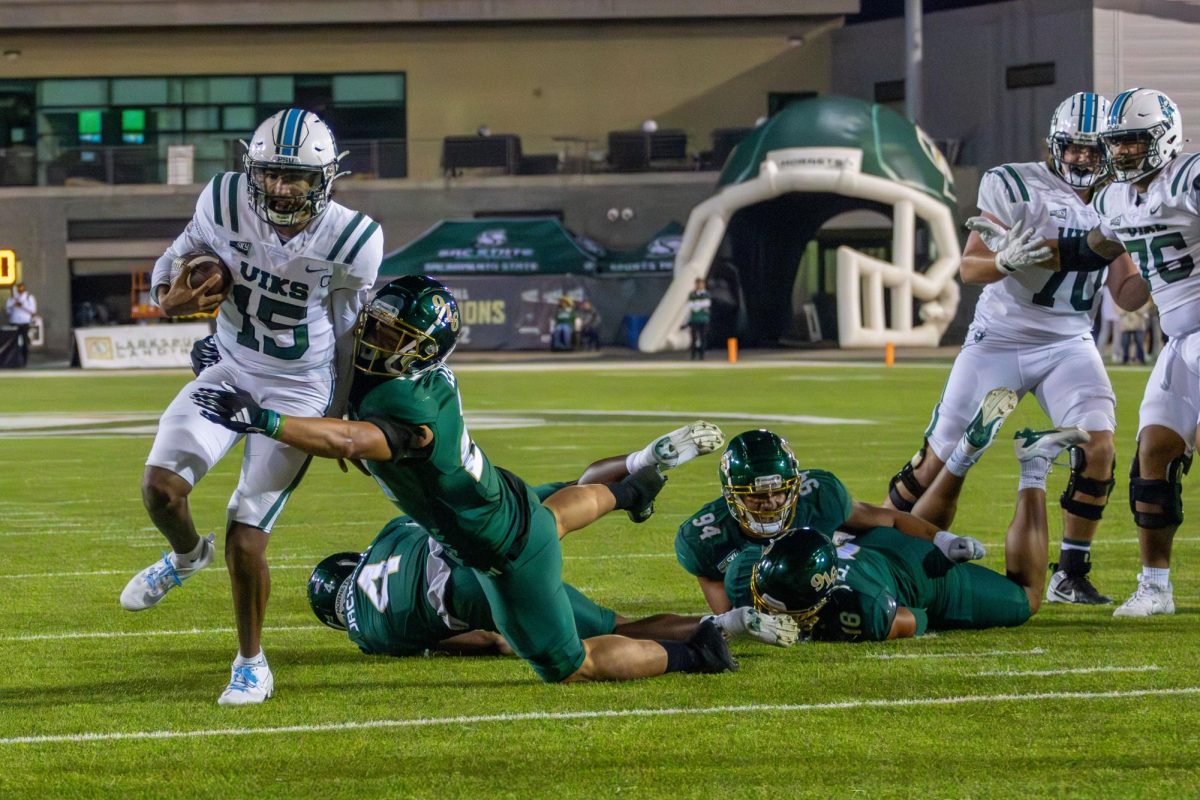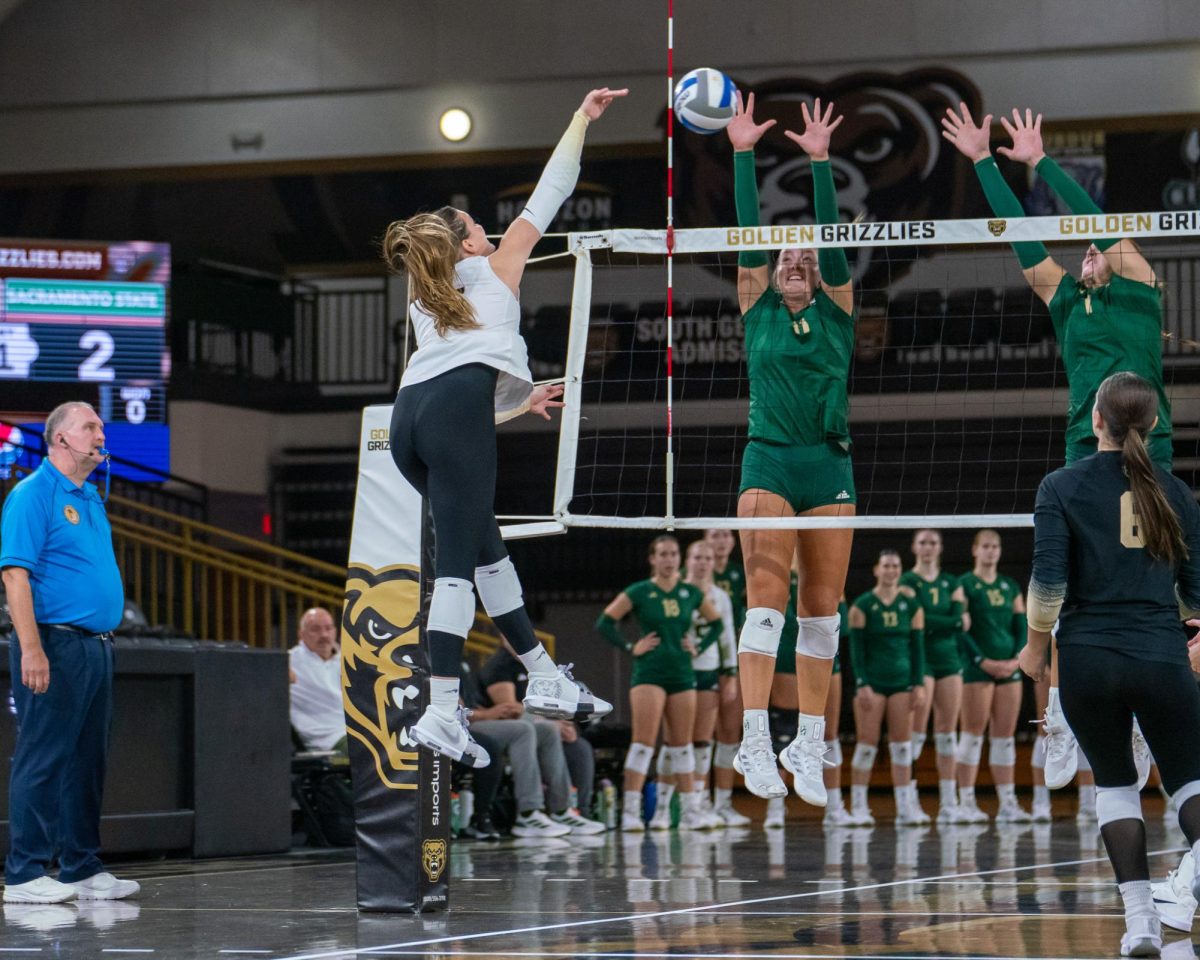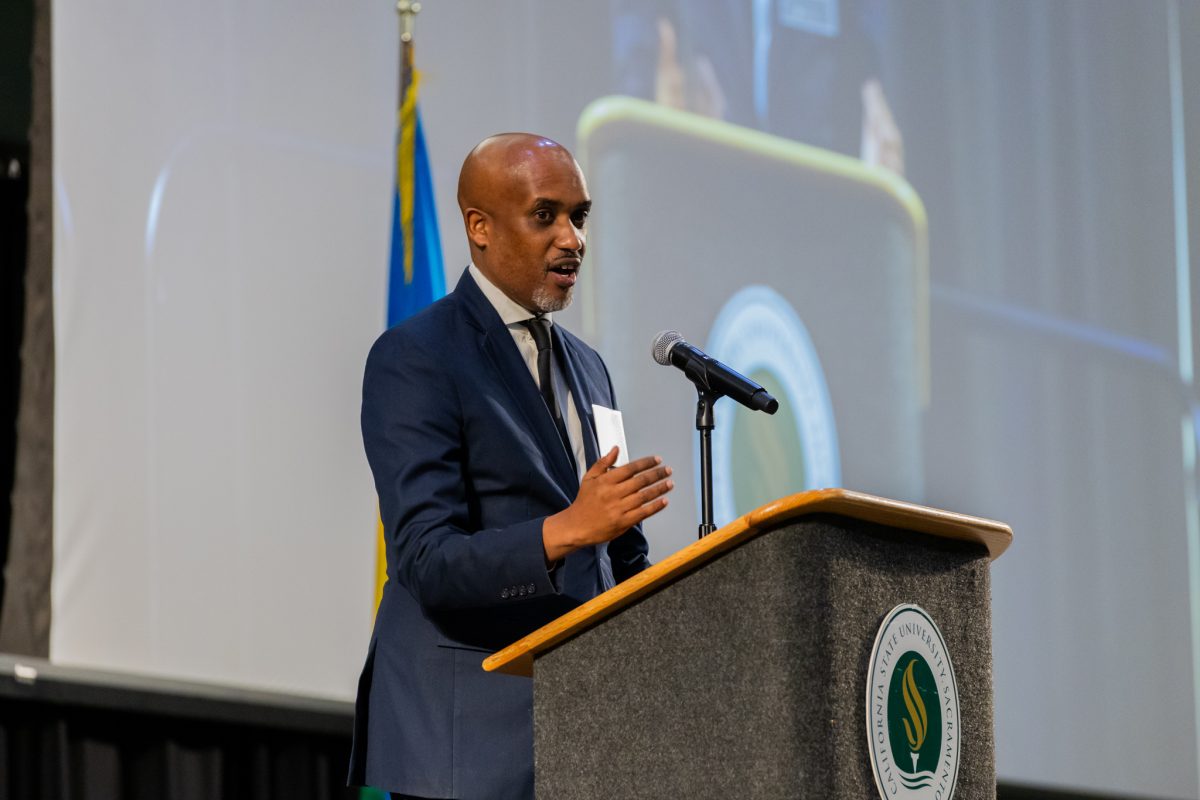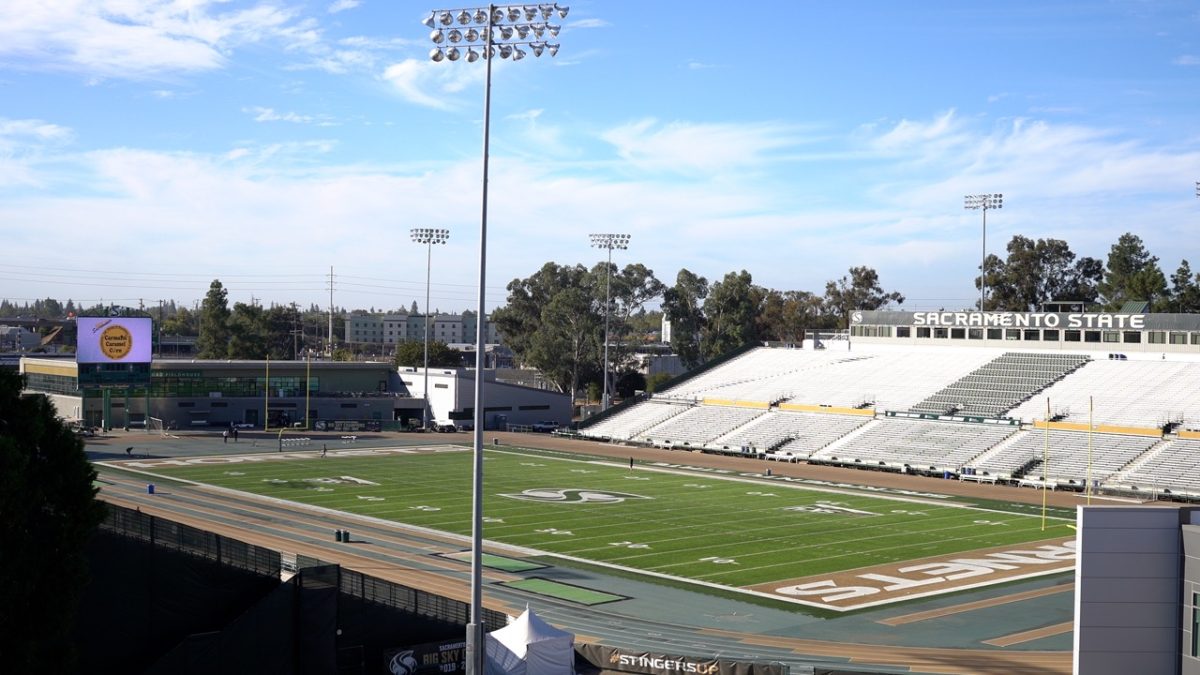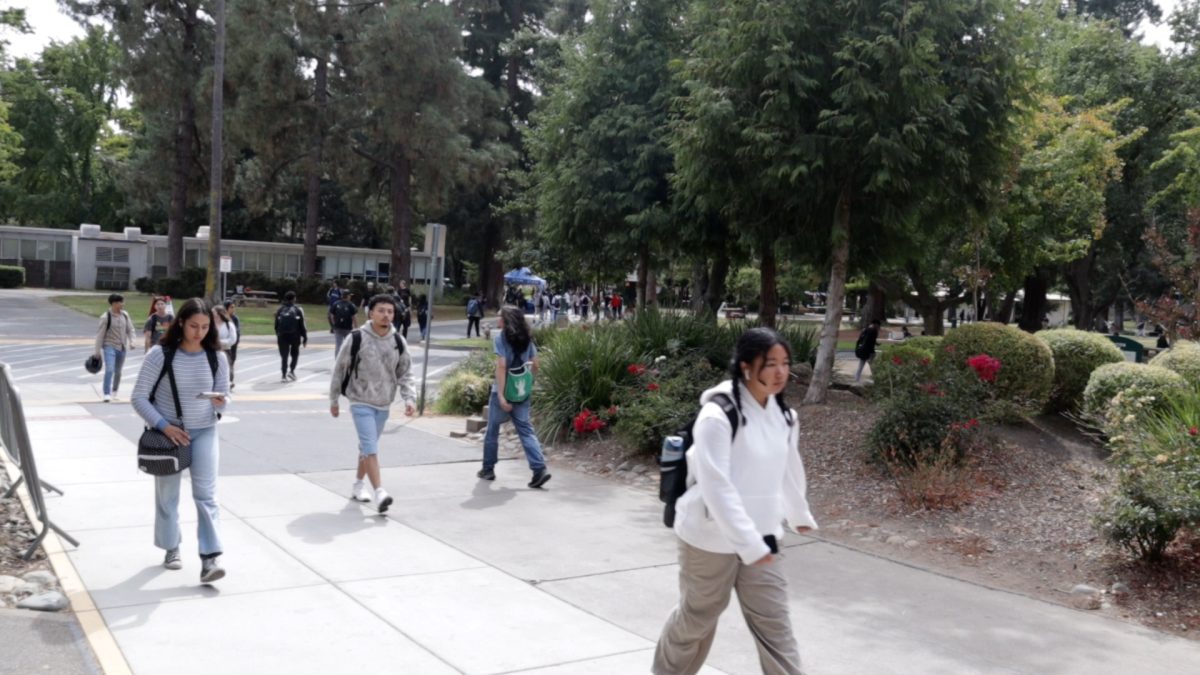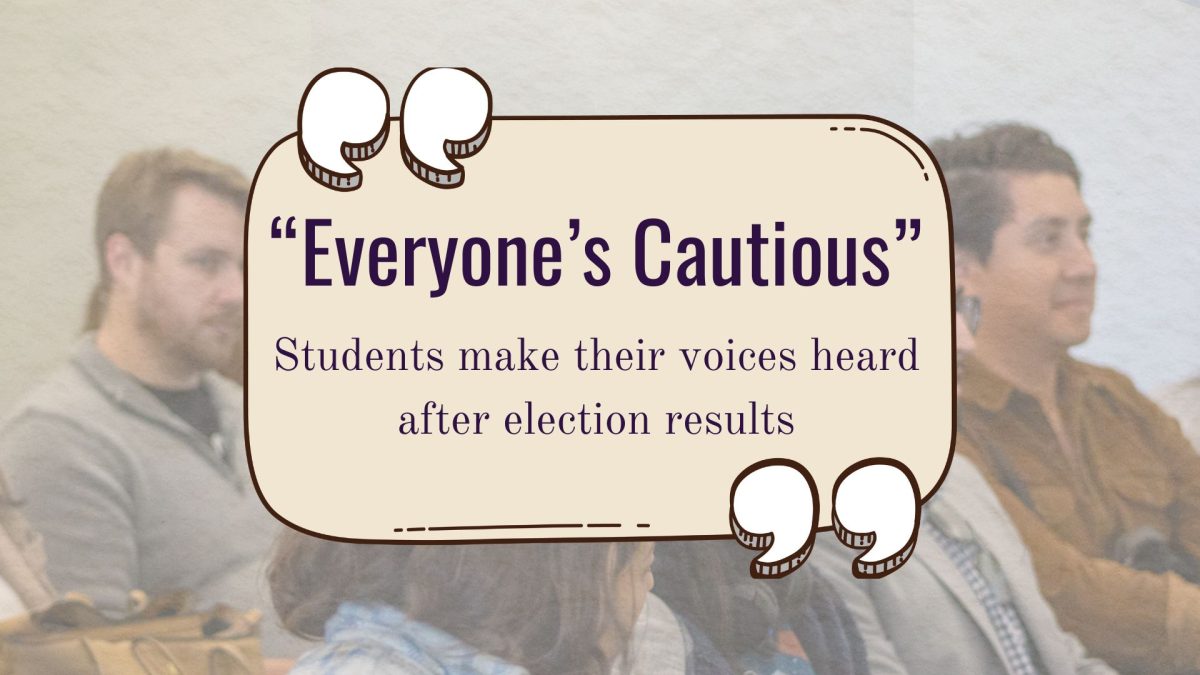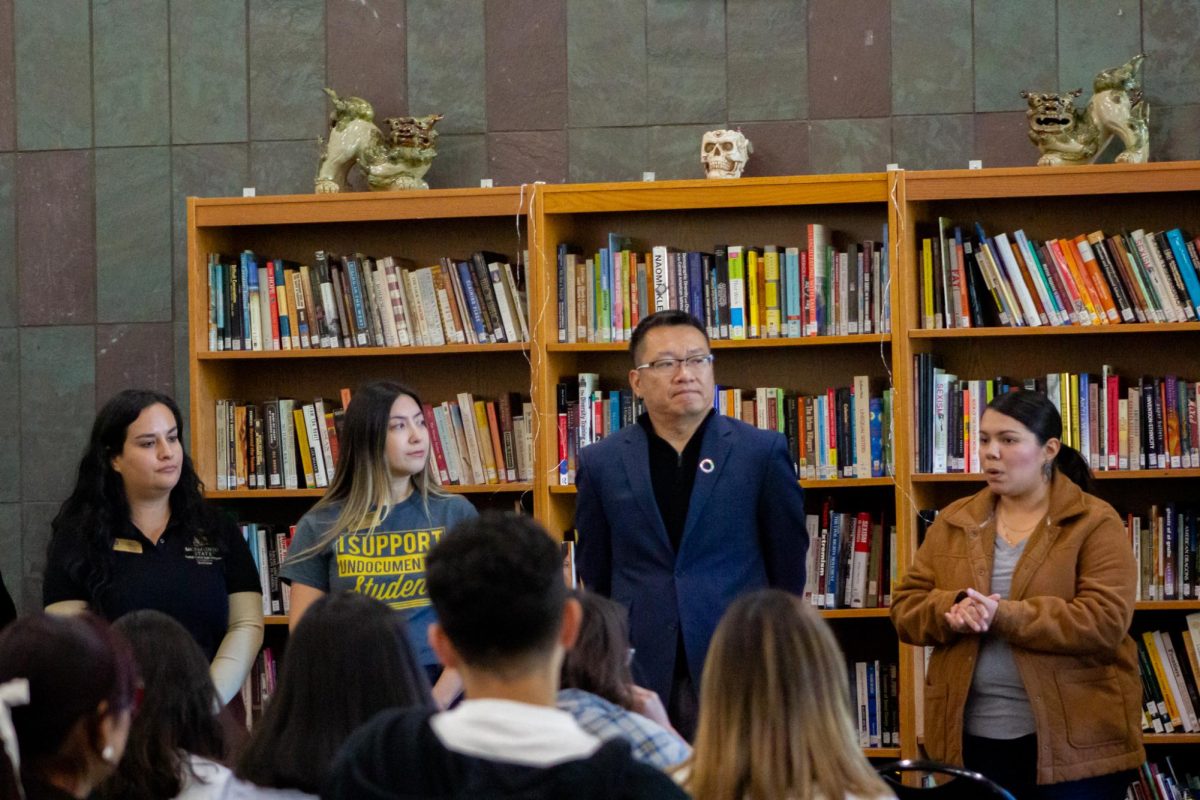“I went to a place you probably would never, ever see.”
Michael Brown Sr. said that’s all he can remember about the moment when he found out that his son, Michael Brown Jr., had been killed by Ferguson, Missouri police officer Darren Wilson on Aug. 9, 2014.
“I felt like I went in a tunnel because I was shocked when I got the call and from right then and on I couldn’t remember nothing,” he said.
Brown spoke about his son’s death — which shook the conscience of America and brought the Black Lives Matter movement to worldwide attention — at a lecture in Sacramento State’s University Union on Thursday.
Brown is touring colleges nationwide to bring attention to the Michael Brown Chosen For Change Foundation, which Brown said seeks to help struggling families.
“The reason we have our foundation is supporting families and supporting black families, supporting children, just building homes and building our communities back up,” Brown said. “Trying to love one another. We are lacking in that.”
On Aug. 9, 2014, Officer Darren Wilson encountered Michael Brown Jr. and a friend, noticing that the two fit the descriptions of suspects in a convenience store robbery earlier that day.
According to a 2015 report from the U.S. Department of Justice, a physical altercation took place between Brown and Wilson in which Brown attempted to grab Wilson’s firearm.
Brown and his friend then began to flee the scene. As they ran, Wilson shot Brown six times, according to an autopsy.
“My wife was talking about the autopsy and said ‘baby, you don’t want to see that,’ ” Michael Brown Sr. told a crowded University Union Ballroom. “I’m glad I didn’t because I want to remember him with a smile.”
Brown said that he feels his family was disrespected because his son’s body was not moved for over four hours after he was killed.
“They disrespected this family. They finally got him up after four and a half hours lying on that ground,” he said. “A lot of people saw Michael in the street dead. When I got there he was covered up. Glad that happened.”
Brown said that one of the goals of the foundation is to help the homeless, because that is what his son would have wanted.
“He wanted to feed the homeless or give some kind of money on the street to make sure they’re OK,” Brown said. “He wasn’t just my son. He was my friend, my bond, the only one with my last name and my first.”
“It changed me; I tell people every day. I look at my life as the day before Mike Brown Jr. got killed and then the time after it happened.” — Brent Clark, Sacramento State student
President Robert Nelsen introduced Brown without doing the usual “stingers up” hand gesture and chant that precedes campus events.
“I think that in America today it’s more important than ever that voices are heard,” Nelsen said. “This is an opportunity for a father to speak tonight for his son and it’s an opportunity for us to listen and understand things we might not have understood before tonight.”
After Brown spoke, he was asked questions by members of the audience.
A group of attendees asked about Brown’s spiritual life in the aftermath of his son’s death.
“I stopped believing in God. I blamed everybody, everything, including myself. I was enraged quite a bit. My mother was Christian. She’d kill me if she heard me say something like that,” Brown said. “But I keep the faith in him, brother. That’s why I’m here, able to speak. So, turning the hate into a positive thing, here I am by the grace of God.”
(story continues below)
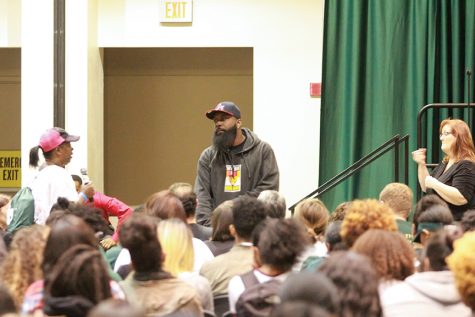
Sacramento State student Brent Clark thanked Brown for sharing his story, saying that the events in Ferguson that summer two years ago has already changed a generation.
“People my age, in our eyes Mike Brown Jr. didn’t die for nothing. We’re not going to forget it,” Clark said. “It changed me; I tell people every day. I look at my life as the day before Mike Brown Jr. got killed and then the time after it happened.
“Here in Sacramento, I watched it happen on Twitter that Saturday. I saw a tweet an hour after it happened; I watched the live streams. So I just wanted to let you know that while we can’t say anything or do anything to bring Mike Jr. back, it’s not going to be in vain.”
The final question in the night’s question-and-answer session was asked by Arcellia Huggins, who said her husband, Broderick, was killed by Oakland police in 2013.
As Huggins cried, telling Brown that she still feels pain from her loss, he walked to the aisle where she was speaking at a microphone and hugged her.
Brown advocated for reforms to police practices, saying that departments should send minority officers on patrol in their own neighborhoods. He said that minorities feel that their lives aren’t being respected by police.
“We are targets,” Brown said. “We are not the enemy. We feel like we are under attack and we shouldn’t be made to feel like that.”
































